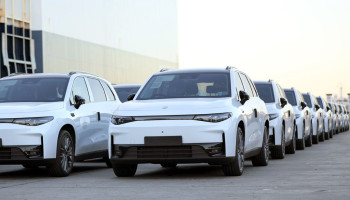Stakeholders have emphasized that the government should bring a stable policy to create an industry-friendly environment to increase vehicle assembling facilities in Nepal. Journalist Association of Automobile and Mobility (JAAM Nepal) has conducted an interaction program with NADA Automobile Association of Nepal and the concerned stakeholders on the topic of 'Possibilities and Challenges of Vehicle Assembly in Nepal' and concluded that policy stability is necessary to increase investment in the vehicle assembly industry
Sagar Gajurel, President of JAAM Nepal, said that due to changes in the policies every year, businessmen who make long-term investments are affected. Thus, a stable policy of eight to ten years is required in the vehicle assembly industry. He further added, "The long-term policies not only protect the investment but also will lead to economic activity in the country and create more jobs."
Similarly, President of NADA Automobile Association of Nepal (NADA) Dhurba Thapa said that due to the lack of stability in the state policy, there is no environment for businessmen to invest. "The changes in the government lead to the change in law and policies," Thapa said. "Policy stability is the demand of businessmen. The government has been saying that the automobile sector is unproductive, however, it is important to categorize the automobile sector between luxury and essential," said Thapa. He further added that there is an urgent need to produce vehicle parts and spare parts. President Thapa also said that the government is treating the automobile business only as a revenue-raising business.
Krishna Dulal, the former chairman of NADA, said that the government has been taking the automobile sector positively in recent times. "Although Nepal is a big market, the ability of the common individual to own a car is very low," He further added, "If vehicle assembly industries are established in Nepal, the automobile sector of Nepal will flourish."
Anup Kumar Baral, coordinator of the NADA Auto Show, said that it is necessary for the government to change the negative view towards the auto sector. Currently, 1.6 million people are directly employed in the auto sector. He said that more than two dozen showrooms have been closed so far in recent times due to the economic downturn.
According to Baral, the infrastructure for electric vehicles should be built as soon as possible. He said that for the establishment of vehicle assembly in Nepal, the government should pay attention to the entire ecosystem. Similarly, automobile entrepreneur Riddhi Karki said that when trying to invest in big businesses in Nepal, businessmen are discouraged due to the lack of coordination among government agencies. "The current situation is that there should be an investment-friendly environment in the government agencies," he said, "Nepal should now go into the robotics and automation industry."
NADA working committee member Kapil Siwakoti said that the provisions provided by the government in the economic act should be considered in the long term and should be moving forward in the favour of the assembly industry. "It is important for the government to pay attention to the quality measurement of the industries that are assembled in Nepal and the industries that are coming," he said.
Shiv Prasad Ghimire, chairman of the transportation committee of the Federation of Nepalese Chambers of Industry and Commerce, said that NADA Autoshow has helped to make the sluggish market active. He said, "If a minister changes in Nepal, the policy of the state changes." At present, there is an environment where vehicle assembling businessmen have to invest in fear if they have to make any big investment. The government should protect those industries because billions are at stake.
Maniram Bhusal, Head of Vehicle Testing Center Teku, said that although the state collects revenue from the automobile sector, there are many accidents due to the lack of vehicle quality checks.
Dhaniram Sharma, joint secretary at the Ministry of Finance, said that the products produced by the assembly industry should be available to consumers at a lower price than imported vehicles. "The doubt of the government is whether the consumer will get the vehicle produced by the assembly plant at a lower price than the imported vehicle or not," he said.
He further said that if the vehicles produced in the assembly industry are available to the consumers at a lower price than the imported vehicles, the government is ready to provide more tax concessions. He added, "Policy stability is necessary and it is also necessary for the government to change its approach towards trade and imports."

















